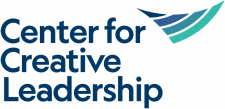- Learning
Options for Leadership Learning
In-person, live online, self-paced online, coaching—the options for developing leadership skills are many. CCL experts use research-based evidence to help you find the right fit for your organization
In this climate, learning is widely recognized as a top priority. For those aspiring to or currently in leadership roles executive development, training, up-skilling or re-skilling are essential prerequisites to addressing the challenges ahead. The support they need is available but no longer comes in the traditional formats. A new landscape in terms of leadership learning modalities is now available.
Accelerated during the COVID pandemic, online learning has become widespread, with executive educators and facilitators being remarkably successful in creating engaging online offerings for remote workers. Now, post-pandemic, the question arises: should we revert to traditional face-to-face classroom learning, or should we step into a totally online, virtual-enabled future?
Center for Creative Leadership (CCL)®’s Samir Mehta, Director of Digital Practice, and Kathryn Kernick, Director of Coaching, Europe, sought to answer this question in a recent IEDP webinar. CCL is better placed than any to offer an informed and balanced view. Grounded in extensive research CCL has been working in the real world with hundreds of thousands of real leaders for the past 50 years. Leadership development is all it does, giving it a unique perspective.
A few insights from CCL’s research remind us how much the world of work has changed since the pandemic — arguably building on trends established earlier. The transition to remote working has led to an increase in productivity, a decrease in reported workplace stress, and several other benefits. However there have also been some downsides: 71% of surveyed HR leaders expressed concern about employee collaboration in hybrid working environments. And inexplicably while 34% of men working from home reported receiving a promotion only 9% of women were promoted.
While, there are also upsides and downsides when it comes to leadership learning methods, CCL’s latest survey of thousands of program participants comes to a perhaps surprising conclusion. On 4 measures there appeared to be very little difference between the modalities. In-person learning was only fractionally seen to give more satisfaction or be more likely to be recommended than live online learning. There was also only a very marginal difference when participants were asked about making meaningful connections. And to the question, “To what extent can [learners] apply the knowledge and skills learned to impact your organization?” the result was exactly the same for in-person and live online.
In-person leadership learning
This is the traditional form of learning that most executives will be familiar with. There are undoubtedly some real time experiential learning opportunities that are only possible in-person, but many aspects of this form of learning are now being successfully replicated online.
These are some key strengths of in-person learning programs:
- The chance to escape the everyday and experience learning in a detached inspirational environment
- Freedom to try new ways of thinking
- Face-to-face contact with peers and facilitators
- Networking opportunities
- Thoughtful and focused development time
Live online learning
Over and above potential cost savings in travel and accommodation, these are some of the benefits of live online programs:
- Flexible and efficient. Easy to access and use from anywhere
- Enhanced psychological safety. Everyone has same access to facilitators and equal ability to chat with peers. Breakout groups and project work outside the live environment allow participants to build bonds
- Roundtable participation moderated by a facilitator
- Learning from the same place where you work—at home or in the office
- Cameo appearances, where senior leaders can drop in for a short time to offer motivation
- Reduced environmental impact due to less travel involved
Self-paced online
The ultimate flexibility and convenience of this form of learning is clear but it can also present some difficulties:
- Learning at any time in the week or day
- Learning program should be for circa 25-30 participant to maintain social cohesion
- Equalizes the experience for introverts and non-English-as-a-first-language speakers
- Personal autonomy means that other learners experience is not harmed
- Self-motivated learners, enjoying a high degree of autonomy, do well
- Motivating the less driven to fully engage can be a challenge. CCL recommends these tactics: i) Hold a kick-off event—a Zoom call with a senior leader; ii) Programs to run no longer than 6 weeks; iii) Restrict cohort to 15-25; iv) Program to be moderated by a host; v) Keep in email contact with participants to check on progress and offer support
Coaching
Individual or group coaching, when delivered in conjunction with in-person or online development programs, can offer these key features:
- Delivery anywhere at any time to fit the schedule of both participant and coach
- Provides individualized attention
- Lessons learned are internalized and remembered
- Provides encouragement and motivation, and a focus on accountability
- A CCL survey of participants and their bosses revealed that program participants who also experienced coaching showed significantly more impact from their learning, when back at work, than those that did not
• • •
Contrary to people’s general assumptions pre-pandemic and before, the main insight CCL brings from their recent executive development experience, its research, and the advances it has made in online learning delivery, is that online learning can be as satisfactory for participants and for their company sponsors as in-person.
Furthermore, there appears to be no evidence that age or gender play any part in how well people learn online. The only predictor of aptitude or success is whether the participant has had any previous experience of online learning.
Each learning modality has its strengths. Depending on the situation and the need, each should be considered equally. An ideal, where possible and appropriate, is to offer a combination of all methods—a mixed experience—providing the intensity and intimacy of face-to-face with the convenience and cost saving of online.
....................................................................................................................
Ready to Take the Next Step?
We can help you determine whether in person versus online learning is right for your organization, and we offer an array of proven courses in both modalities to suit whatever works best for your leaders.
Talk to a CCL leadership expert now to discover which is right for you.
……………………………………………………………………………………………………….

Samir Mehta is CCL's Director of Digital Learning Products, ensuring that digital learning products and blended learning solutions are designed and delivered seamlessly for CCL’s clients worldwide. He also facilitates virtual learning experiences and serves as a leadership coach He has a Bachelor of Engineering degree from the University of Pune in India and an MBA from the Indian School of Business.

Kathryn Kernick is Client Advisory Director - Europe and Leadership Coach for CCL, partnering with organizations throughout Europe to address critical leadership challenges. She holds a BA in European Business Administration from the University of Humberside and an MA in Personnel & Development from the University of Westminster.
A top-ranked, global provider of leadership development. By leveraging the power of leadership to drive results that matter most to clients, CCL transforms individual leaders, teams, organizations and society.
ARTICLES YOU MIGHT LIKE
VIEWPOINT
emlyon business school’s custom-training program director, Gilles Basset, reveals the potential for generative AI to improve executive education programs
DEVELOPING LEADERS QUARTERLY MAGAZINE AND WEEKLY BRIEFING EMAILS

































